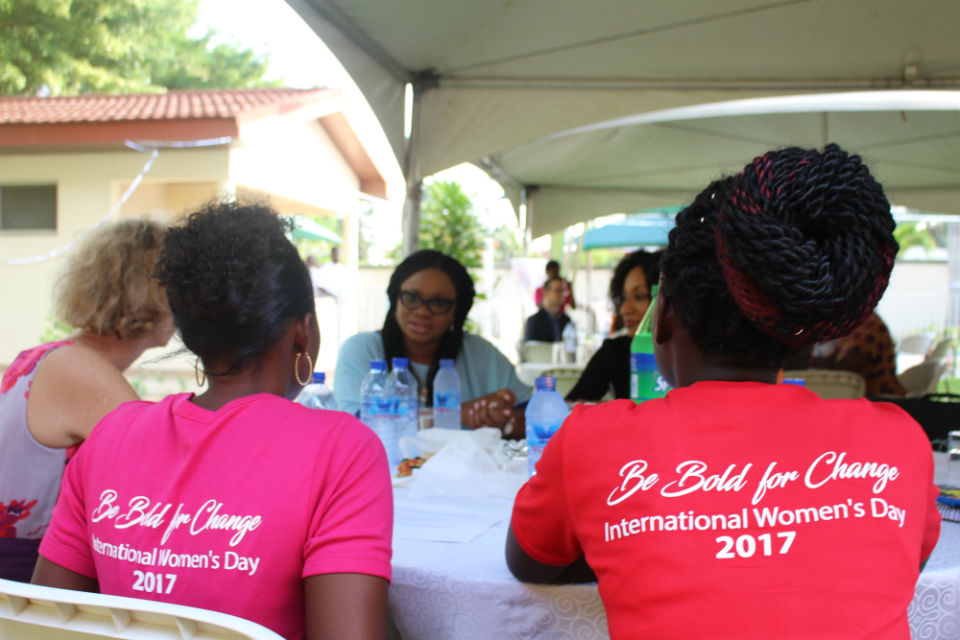British High Commissioner's speech marking International Women's Day 2017
British High Commissioner Jon Benjamin's speech at the joint mission mentoring session with young students from senior high schools to mark International Women's Day 2017.

Honorable Minister for Aviation Mrs. Cecilia Dapaah, Chairman of the Electoral Commission Charlotte Osei, distinguished guests, Colleagues from the diplomatic community, the media, ladies and gentlemen, all protocols observed.
Last year, organizations and individuals around the world, including myself supported the #PledgeForParity campaign, pledging to help women and girls achieve their ambitions, through commitments which included, but are not limited to; challenging conscious and unconscious bias; calling for gender-balanced leadership; valuing women and men’s contributions equally; and creating inclusive flexible cultures. From awareness raising to demonstrations of concrete action, organizations rallied their people to pledge support to help forge gender parity on International Women’s Day (IWD) 2016.
But the World Economic Forum predicts the gender gap won’t close entirely until 2186. This is too long to wait. Around the world, IWD can be an important catalyst and vehicle for driving greater change for women and moving closer to gender parity.
In this light, this year’s theme “Be bold for change- Women in the changing world of work,” calls us all here today to help forge a better working world - a more gender inclusive world. A world where female voices and leaderships are heard and seen in sectors traditionally dominated by men.
The British High Commission is delighted to be partnering with the Canadian and the Australian High Commission today bringing together successful industry professionals to mentor female students selected from senior high schools. Indeed, we know that women and girls typically make up just over half of most national populations, including here on the African continent.
The UK’s Gender Equality Act 2014 puts existing commitment to gender equality on a statutory footing and ensures that gender equality remains at the heart of our development assistance. Through our Department for International Development -DFID, we work closely with the Government of Ghana and other stakeholders to address key barriers to the attainment of gender parity.
In 2016, the UK’s DFID launched a new initiative: ‘Leave No Girl Behind,’ an initiative committed to delivering quality education to disadvantaged girls. We believe that access to a good education, in a safe environment, significantly improves the life chances of girls. In Ghana, DFID programming provides over £100m every year, much of which is focussed on women and girls, helping those who are at significant risk of dropping out of school complete their secondary education. Our Complementary Basic Education programme targets out of school children, including girls, and provides them with a second chance at education.
In health, the UK remains a key partner in promoting, protecting and supporting sexual and reproductive health and rights. Our Adolescent Reproductive Health programme worth £17 million works with vulnerable girls in the Brong Ahafo region to improve their knowledge and behaviour around reproductive health.
I hope students alongside mentors here today will continue to be inspired to take up professions in various industries, but more importantly to be bold; successfully taking up the study and or training and thereafter excelling in professions that have typically in the past, been associated with male dominance.
I wish you all a successful and insightful evening.
Thank you